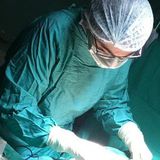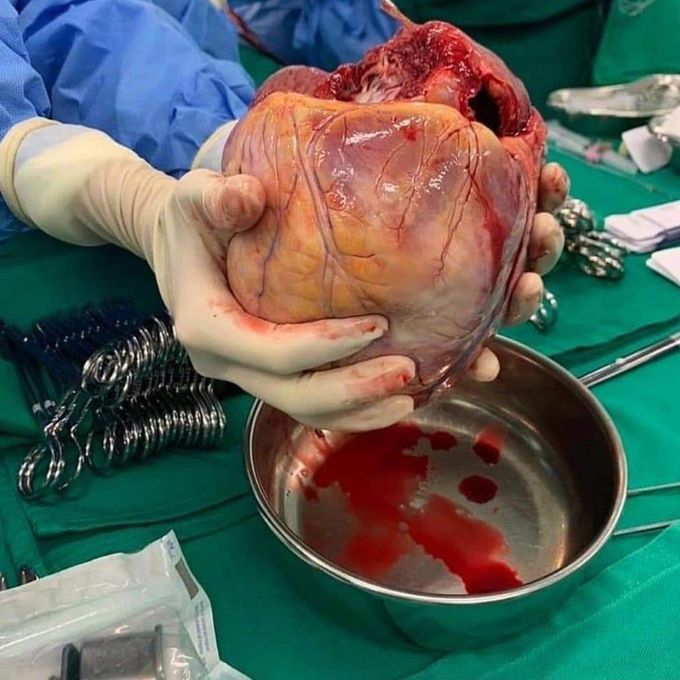


Caribbean medical university
CARDIOMYOPATHY #MindfulMonday This enormous heart is nearly double the size of a normal human heart! Cardiomyopathy is a progressive disease of the myocardium (heart muscle). It is defined as a disorder in which the heart muscle is structurally & functionally abnormal in the absence of CAD, HTN, valvular disease, & congenital heart disease sufficient to explain the abnormality. Let’s go through the 3 most common types of abnormally ‘big’ hearts: Dilated cardiomyopathy (DCM): most common type, it is characterized by dilation & impaired contraction of one or both ventricles. In DCM, the decreased ventricular contractility of the dilated left ventricle (LV) leads to failure of the left & eventually right heart with decreased ventricular output (this type of heart loses its ability to effectively pump blood over time - systolic dysfxn). Etiologies are often idiopathic, familial, + related to alcohol abuse, viral infections, cocaine use, chemotherapy, hemochromatosis, sarcoidosis & pregnancy. Hypertrophic cardiomyopathy (HCM) is caused by a variety of mutations (60-70% genetic) associated with hypertrophy (thickening of muscle fibers - but not in a good way) of the LV & it often involves the septum. It causes decreased ventricular relaxation & defective filling of the heart chambers (diastolic dysfxn). A variant of HCM is Athlete's heart. In response to endurance training, there can be physiologic increases in LV wall thickness, cavity size & mass, often referred to as "athlete's heart." Intensive athletic training is associated with a lower resting heart rate - meaning the heart can pump more blood with each beat - improving its cardiac output while decreasing the amount of contractions per minute! Lastly, Restrictive cardiomyopathy, the rarest form, is a condition in which the walls of the lower chambers of the heart are abnormally rigid & lack the flexibility to expand & fill with blood, this is typically due to deposition of materials from infiltrative disease or post radiation fibrosis. With this in mind, lets take a second to appreciate our heart & the relentless effort it gives for us each & every day! Happy Monday fam. #MEDspiration
Lebanon, just finished my med school few months ago and will start my OBGYN residency soon


